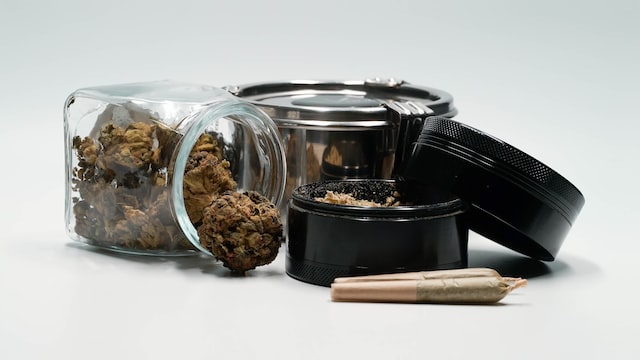Medical marijuana is a beneficial alternative to opiates for many patients. It can be used for palliative care, nausea, and weight loss. It is also legal in several states, including Delaware, Pennsylvania, and California.
It’s a muscle relaxant
If you’re experiencing severe muscle pain, you may want to try using medical marijuana as a muscle relaxant. This option could help relieve your pain and reduce inflammation, which is a cause of cardiovascular disease and type 2 diabetes. However, there are risks involved.
Drugs called muscle relaxants are used to treat muscle cramps and spasms. They help reduce pain intensity and can also improve the mobility of the muscles. Usually, they are prescribed by a doctor.
However, muscle relaxants have side effects that can interfere with your daily activities. Some people experience dizziness, drowsiness, dry mouth, and headaches while taking these medications. The drugs can also affect your blood pressure.
It’s used to manage nausea and weight loss
There are many medical benefits to using marijuana. It’s not for nothing that it is a popular medicine for various ailments. It is also relatively non-addictive. Unlike its counterparts, it isn’t a pain to use, which makes it a good choice for patients. Marijuana can be procured from your physician or a licensed weed dispensary.
The FDA has approved many cannabinoids for various uses, some of the more popular ones being THC, dronabinol, and Nabilone. As a result, many doctors are catching up with their patients on these topics. It includes using medical marijuana to manage nausea and weight loss. Many veterans claim they’ve seen a measurable improvement in their quality of life.
It’s a palliative treatment
Medicinal marijuana is a palliative treatment that helps ease pain and suffering. It also can enhance care during the last stage of a patient’s life. However, there are still questions about its efficacy, safety, and benefits.
Some states in the US have made the use of medicinal marijuana lawful. Patients can access the medication from a dispensary. While the evidence base is sparse, many physicians believe the product alleviates symptoms effectively.
There are two evidence-based guidelines on the use of medical cannabis in the palliative care setting. One guideline recommends using the substance in cases where the patient’s symptoms are refractory to other treatment options. A second guideline recommends using the drug only after considering the risks. If you want to use marijuana for medical purposes, you need to apply for Miami Medical Card or of your state so you can get it legally.
It’s a Schedule II drug
If you’ve been researching the medical uses of marijuana, you’re probably already aware that the Drug Enforcement Administration has classed the substance as a schedule II drug. Although this is a relatively minor change in marijuana’s status, it does raise some questions about the future of medical marijuana research.
The current drug scheduling does not indicate that it is more dangerous than other drugs, like cocaine or heroin. However, the schedule does not give marijuana a fair chance to be classified as a medicine.
A controlled substance is any drug with high abuse potential. Controlled drugs can cause severe physical and psychological dependence.
It’s legal in California
It’s legal for patients to purchase and use medical marijuana in California. The state’s laws, however, are somewhat confusing.
Fortunately, the state’s legislature has taken steps to clarify these laws. Since 2015, state lawmakers have approved regulations relating to medical marijuana.
Medical cannabis is allowed in certain situations, but the rules are much more restrictive than the laws governing recreational cannabis. Patients who qualify for a medical marijuana identification card must show a qualifying condition. If a physician believes a patient needs medical marijuana, they can order it. Obtaining an MMICP is necessary to keep patients from paying the state’s sales tax on their purchases.
It’s legal in Delaware, Pennsylvania, and nine others
There are several states where medical marijuana is legal. Some of these include Delaware, Pennsylvania, and nine others.
Several laws have been placed to enable patients to access helpful therapies. They are also supposed to protect patients from being arrested and prosecuted. In addition, physicians who recommend marijuana are deemed to be covered by free speech.
There are several questions about the actual legality of marijuana. For instance, does the federal government have the right to criminalize marijuana? Likewise, is the use of marijuana legal in all 50 states? It’s a hot topic, as many politicians want to square up federal and state laws.
The first round of granting grower/processor permits was completed in December 2016. Dispensaries began serving patients in April 2018. A memorandum issued by the Office of the Deputy U.S. Attorney General in October 2009 stated that the federal government would abstain from prosecuting individuals in states with medical marijuana laws.
Read More:
Marijuana for pain: 5 of the best strains for chronic pain relief


